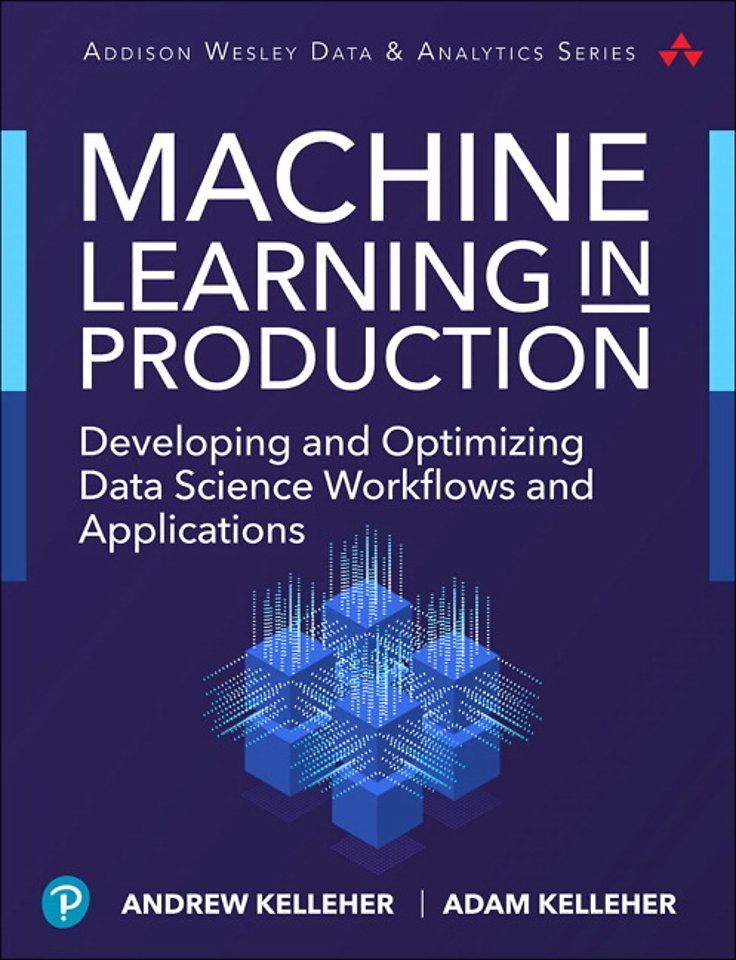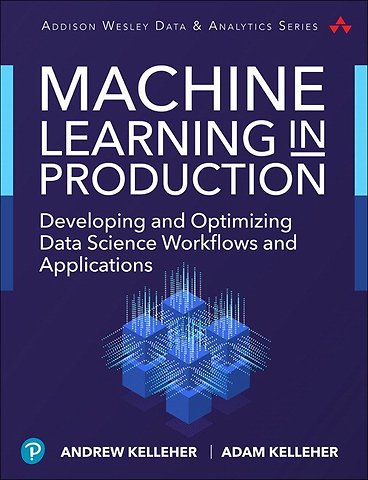Machine Learning in Production
Developing and Optimizing Data Science Workflows and Applications
Paperback Engels 2019 1e druk 9780134116549Samenvatting
Foundational Hands-On Skills for Succeeding with Real Data Science Projects
'This pragmatic book introduces both machine learning and data science, bridging gaps between data scientist and engineer, and helping you bring these techniques into production. It helps ensure that your efforts actually solve your problem, and offers unique coverage of real-world optimization in production settings.' – From the Foreword by Paul Dix, series editor
'Machine Learning in Production' is a crash course in data science and machine learning for people who need to solve real-world problems in production environments. Written for technically competent “accidental data scientists” with more curiosity and ambition than formal training, this complete and rigorous introduction stresses practice, not theory.
Building on agile principles, Andrew and Adam Kelleher show how to quickly deliver significant value in production, resisting overhyped tools and unnecessary complexity. Drawing on their extensive experience, they help you ask useful questions and then execute production projects from start to finish.
The authors show just how much information you can glean with straightforward queries, aggregations, and visualizations, and they teach indispensable error analysis methods to avoid costly mistakes. They turn to workhorse machine learning techniques such as linear regression, classification, clustering, and Bayesian inference, helping you choose the right algorithm for each production problem. Their concluding section on hardware, infrastructure, and distributed systems offers unique and invaluable guidance on optimization in production environments.
Andrew and Adam always focus on what matters in production: solving the problems that offer the highest return on investment, using the simplest, lowest-risk approaches that work.
- Leverage agile principles to maximize development efficiency in production projects
- Learn from practical Python code examples and visualizations that bring essential algorithmic concepts to life
- Start with simple heuristics and improve them as your data pipeline matures
- Avoid bad conclusions by implementing foundational error analysis techniques
- Communicate your results with basic data visualization techniques
- Master basic machine learning techniques, starting with linear regression and random forests
- Perform classification and clustering on both vector and graph data
- Learn the basics of graphical models and Bayesian inference
- Understand correlation and causation in machine learning models
- Explore overfitting, model capacity, and other advanced machine learning techniques
- Make informed architectural decisions about storage, data transfer, computation, and communication
Specificaties
Lezersrecensies
Inhoudsopgave
1. Introduction: How We See Data Science
2. Translate an Ask into a Well-Formed problem
3. Framing/Re-framing
Part II: Principles of Choosing a Model
4. Finding Causal Relationships
5. Quantifying Quality and Confidence
6. Quantifying Error
7. Noise
Part III: Case Studies
8. The Initial Ask: Knowing When to Reframe
9. Building Domain Knowledge
10. Causal Modeling
11. Assessment of the Data Set
12. System Modeling
13. Refinement
Part IV: Appendices
A. Brief Overview of Common Algorithms
B. History/Progression of Search Algorithms
C. History/Progression of Metrics for User Engagement
D. Useful Papers and Further Reading
Anderen die dit boek kochten, kochten ook
Rubrieken
- advisering
- algemeen management
- coaching en trainen
- communicatie en media
- economie
- financieel management
- inkoop en logistiek
- internet en social media
- it-management / ict
- juridisch
- leiderschap
- marketing
- mens en maatschappij
- non-profit
- ondernemen
- organisatiekunde
- personal finance
- personeelsmanagement
- persoonlijke effectiviteit
- projectmanagement
- psychologie
- reclame en verkoop
- strategisch management
- verandermanagement
- werk en loopbaan







